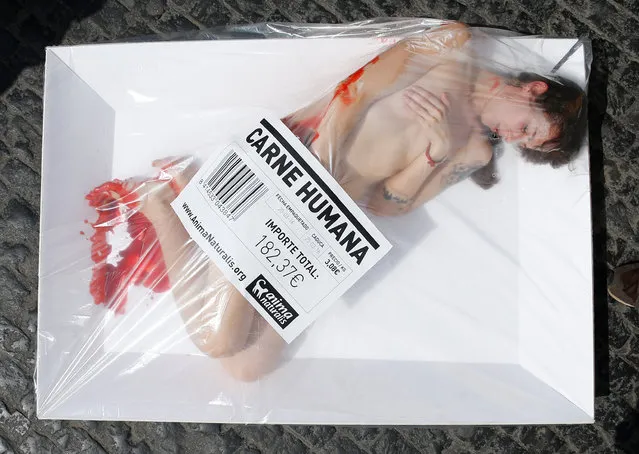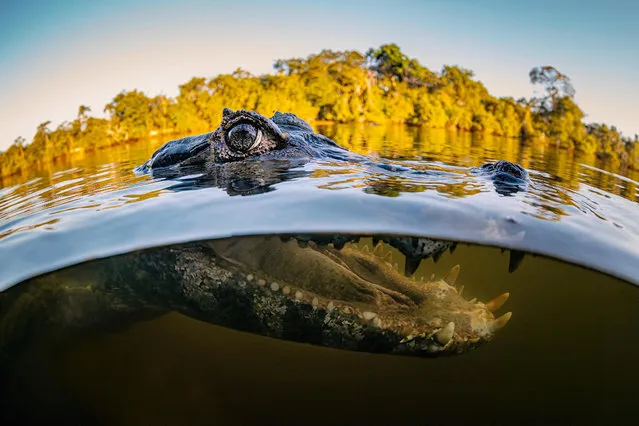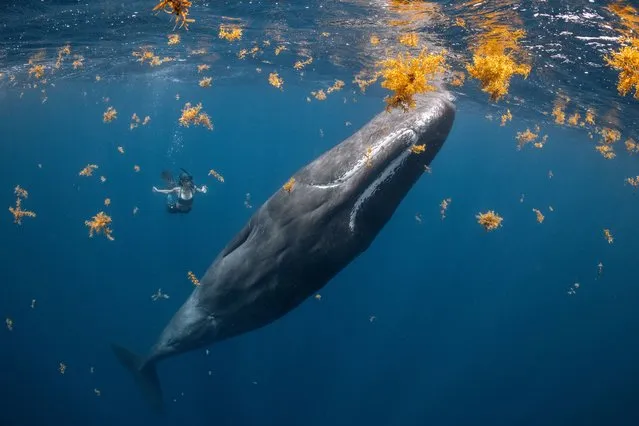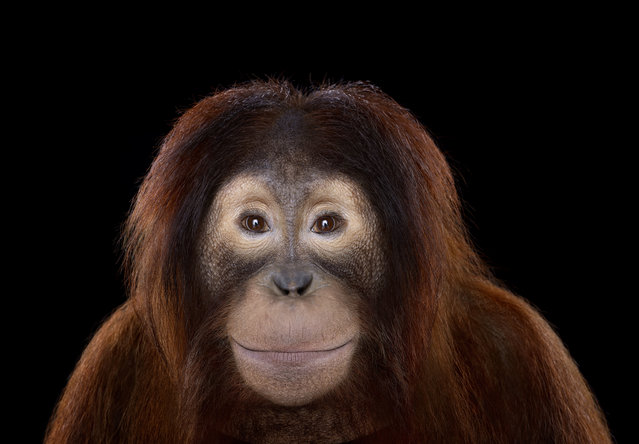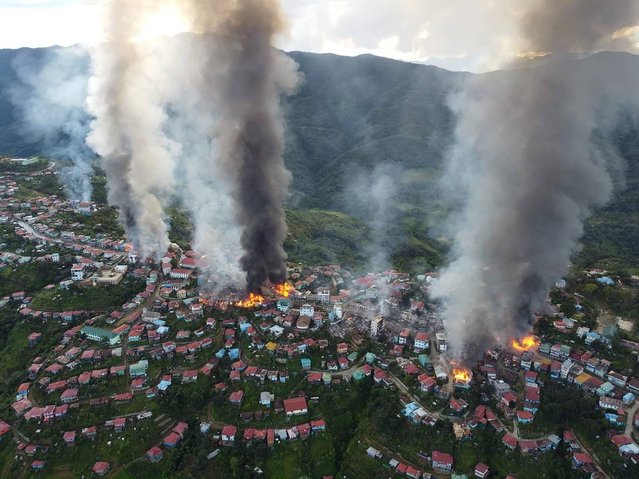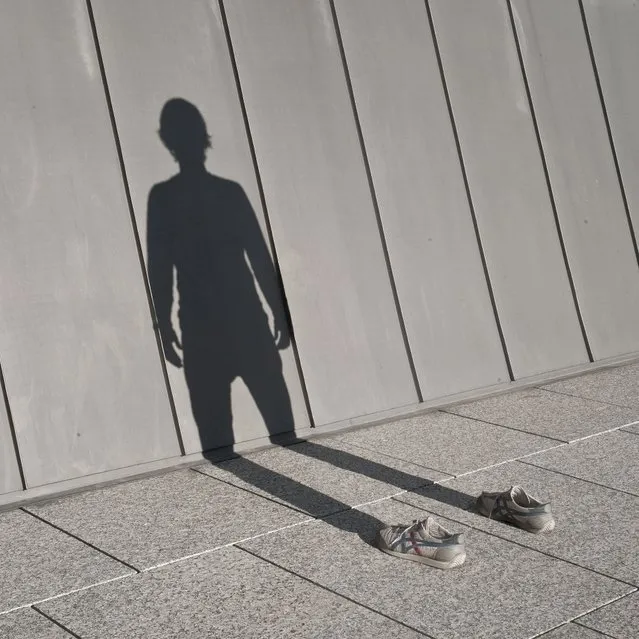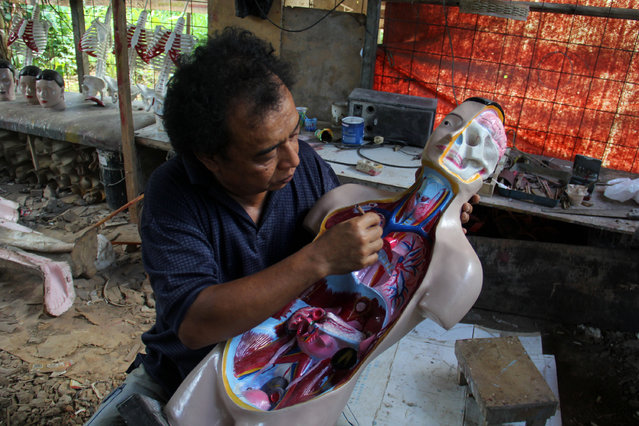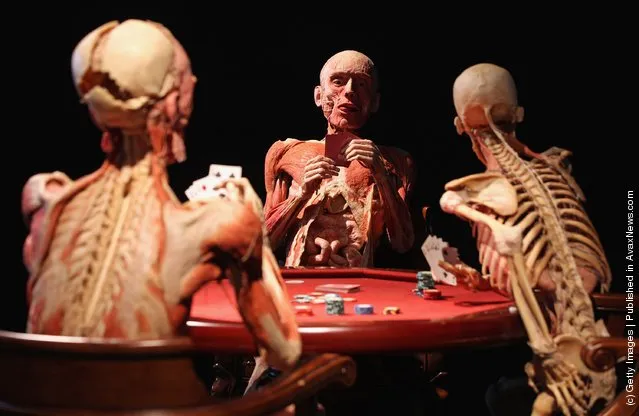
Plastinated human corpses posed to look like poker players stand on display at the Body Worlds exhibition on April 27, 2011 in Berlin, Germany. The exhibition, which features human and animal corpses plastinated by Gunther von Hagens, focuses on the role of the heart. It will be open to the public at the Postbahnhof from April 27 to August 14. (Photo by Sean Gallup/Getty Images)
27 Apr 2011 08:15:00,post received
0 comments

